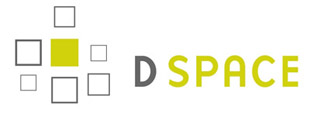Por favor, use este identificador para citar o enlazar este ítem:
http://hdl.handle.net/20.500.11765/2293
SUSPEN intercomparison of ultraviolet spectroradiometers
| Título : | SUSPEN intercomparison of ultraviolet spectroradiometers |
| Autor : | Bais, Alkiviadis F.; Gardiner, Brian G.; Slaper, Harry; Blumthaler, Mario; Bernhard, Germar; McKenzie, Richard Lloyd; Webb, Ann R.; Seckmeyer, Gunther; Kjeldstad, Berit; Koskela, Tapani; Kirsch, Peter J.; Gröbner, Julian; Kerr, James B.; Kazadzis, Stelios; Leszczynski, K.; Wardle, Dale; Josefsson, Weine; Brogniez, Colette; Gillotay, Didier; Reinen, H.; Weihs, Philipp; Svenoe, T.; Eriksen, Paul; Kuik, F.; Redondas, Alberto


|
| Palabras clave : | Ultraviolet spectroradiometers; Intercomparison; Solar UV |
| Fecha de publicación : | 2001 |
| Editor: | American Geophysical Union |
| Citación : | Journal of Geophysical Research: Atmospheres. 2001, 106(D12), p. 12509–12525 |
| Versión del editor: | https://dx.doi.org/10.1029/2000JD900561 |
| Resumen : | Results from an intercomparison campaign of ultraviolet spectroradiometers that was organized at Nea Michaniona, Greece, July 1–13, 1997, are presented. Nineteen instrument systems from 15 different countries took part and provided spectra of global solar UV irradiance for two consecutive days from sunrise to sunset every half hour. No data exchange was allowed between participants in order to achieve absolutely independent results among the instruments. The data analysis procedure included the determination of wavelength shifts and the application of suitable corrections to the measured spectra, their standardization to common spectral resolution of 1 nm full width at half maximum and the application of cosine corrections. Reference spectra were calculated for each observational time, derived for a set of instruments which were objectively selected and used as comparison norms for the assessment of the relative agreement among the various instruments. With regard to the absolute irradiance measurements, the range of the deviations from the reference for all spectra was within ±20%. About half of the instruments agreed to within ±5%, while only three fell outside the ±10% agreement limit. As for the accuracy of the wavelength registration of the recorded spectra, for most of the spectroradiometers (14) the calculated wavelength shifts were smaller than 0.2 nm. The overall outcome of the campaign was very encouraging, as it was proven that the agreement among the majority of the instruments was good and comparable to the commonly accepted uncertainties of spectral UV measurements. In addition, many of the instruments provided consistent results relative to at least the previous two intercomparison campaigns, held in 1995 in Ispra, Italy, and in 1993 in Garmisch-Partenkirchen, Germany. As a result of this series of intercomparison campaigns, several of the currently operating spectroradiometers operating may be regarded as a core group of instruments, which with the employment of proper operational procedures are capable of providing quality spectral solar UV measurements. |
| Patrocinador: | This work was conducted in the framework of the projec SUSPEN that was supported by the European Commission's Environment and Climate Programme, Contract ENV4-CT95-0056. The development OF THE SHICrivm software package was partly supported by the SUVDAMA project of the European Commission's Environment and Climate Programme, Contract ENV4-CT95-0177. |
| URI : | http://hdl.handle.net/20.500.11765/2293 |
| ISSN : | 2169-897X 2169-8996 |
| Colecciones: | Artículos científicos 2000-2004 |
Ficheros en este ítem:
| Fichero | Descripción | Tamaño | Formato | ||
|---|---|---|---|---|---|
| Bais_2001-JGRSE.pdf | 2,39 MB | Adobe PDF |  Visualizar/Abrir |
Los ítems de Arcimis están protegidos por una Licencia Creative Commons, salvo que se indique lo contrario.





